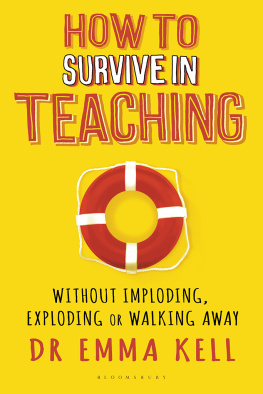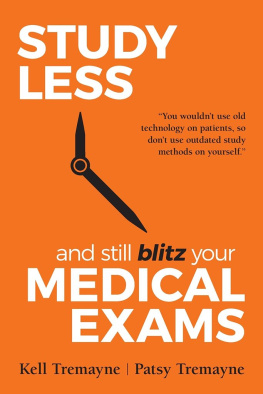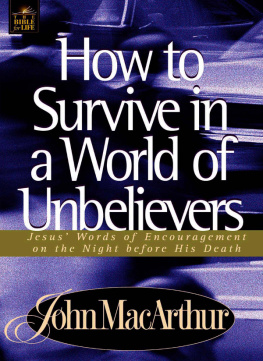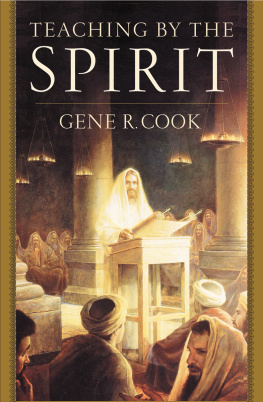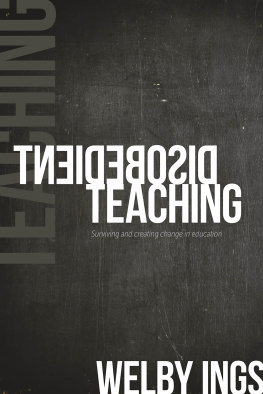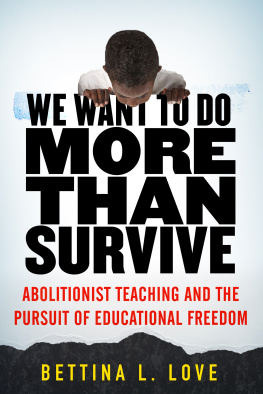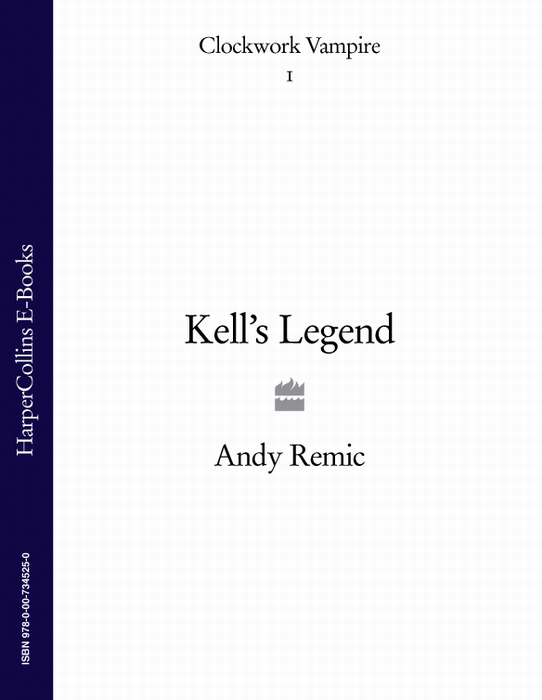Kell - How to Survive in Teaching
Here you can read online Kell - How to Survive in Teaching full text of the book (entire story) in english for free. Download pdf and epub, get meaning, cover and reviews about this ebook. year: 2017, publisher: Bloomsbury, genre: Religion. Description of the work, (preface) as well as reviews are available. Best literature library LitArk.com created for fans of good reading and offers a wide selection of genres:
Romance novel
Science fiction
Adventure
Detective
Science
History
Home and family
Prose
Art
Politics
Computer
Non-fiction
Religion
Business
Children
Humor
Choose a favorite category and find really read worthwhile books. Enjoy immersion in the world of imagination, feel the emotions of the characters or learn something new for yourself, make an fascinating discovery.
How to Survive in Teaching: summary, description and annotation
We offer to read an annotation, description, summary or preface (depends on what the author of the book "How to Survive in Teaching" wrote himself). If you haven't found the necessary information about the book — write in the comments, we will try to find it.
Kell: author's other books
Who wrote How to Survive in Teaching? Find out the surname, the name of the author of the book and a list of all author's works by series.
How to Survive in Teaching — read online for free the complete book (whole text) full work
Below is the text of the book, divided by pages. System saving the place of the last page read, allows you to conveniently read the book "How to Survive in Teaching" online for free, without having to search again every time where you left off. Put a bookmark, and you can go to the page where you finished reading at any time.
Font size:
Interval:
Bookmark:


Praise for
How to Survive in Teaching
Emma had me hooked from the Acknowledgements page. This is a warm, forthright, humane and eminently practical book for every challenge, there is a response suggesting a way forward. Invaluable advice is offered to new, and not so new, teachers about how to thrive in this mad, wonderful profession. While recognising the pressures and demands of teaching, Emma also celebrates joy. Jill Berry, Former Head, now Leadership Consultant, @jillberry102
Emmas passion for teaching and teacher wellbeing shines out from every page in this gem of a book. The combination of informed analysis and practical advice, rooted in research and experience, make it invaluable. Sam Collins, Teacher and Founder of Schoolwell, @samschoolstuff
Sprung from Emmas love affair with teaching, How to Survive in Teaching is a compassionate plea for teachers to take care of themselves. Emma rightly reminds teachers that even if the profession is a vocation, teaching is also a job and must be treated as such.
Loic Menzies, Director of Education and Youth Think and Action-Tank, @LKMco
Teachers have hearts and bodies, as well as heads and hands [...] They cannot teach well if any part of them is disengaged for long. [...] Without feeling, without the freedom to face themselves, to be whole persons in the classroom, they implode, explodeor walk away.
(Nias, 1996, p. 305)
Contents
Introduction
This book is a love song, a battle cry, a lament for the profession to which I have dedicated almost half of my life so far, and to which I plan to dedicate myself for as long as I possibly can. I have always said that when I get bitter and jaded, I will no longer be able to continue. It hasnt happened yet, and I cant imagine it will.
This book is a celebration and a call to action. It has been my comfort blanket and the monkey on my back for the last 18 months. During most of this time, I have been simultaneously working full time in a London secondary school as head of English, and my own experiences the frustrations and the joys, the fears and hopes for the future of teaching in the UK form the backdrop to the experiences of my research participants. This book has been both a deeply personal exercise and a highly public one a balance which has not always been easy to maintain, but which has created a dynamic tension that has kept me focused and determined to do the subject justice.
It has been an honour to represent the voices of the thousands of teachers, potential teachers and former teachers who have given up their time to share their stories; an honour that has at times been daunting in the extreme, but the impetus to write has come from a deeply felt conviction that this is important. Everybody needs teachers. Teachers who are wrung-out and bitter are no good to us. Teachers who are thriving do a better job than those who are exhausted, disillusioned and running on empty.
Teaching is a wonderful job. Truly it is. I cannot imagine another profession in which I would laugh so much, feel triumph and disappointment so intensely, and have such a deeply ingrained sense of having a very real chance to make a difference, to make a mark on the future. But, at the moment, there is something very, very wrong with teaching in the UK. Teachers are leaving in their droves. Students are experiencing as many as six teachers in one subject on their journey through a single school. Its not right, and we need to do something about it!
I embark upon this book as I near the end of my second decade in teaching. I currently hold a head of department role in a London comprehensive school, the sixth school in which I have taught. I am one of the lucky ones I love my job. This has been the case for the majority of my career, during which I have been fortunate enough to work with a range of strong and inspirational colleagues and tremendous teenagers, each with their own unique take on being a challenging adolescent and each brimming with unique potential. The classrooms and corridors of schools are where my colleagues and I feel most in our professional element. Here we experience the rhythms of the school day, the canteen queue catch-ups, the clouds which change a childs face so that we know, at first glance, that something is afoot, the singing cleaners first thing in the morning, the smells of cleaning fluid and the damp-dog smell of boys after a rainy lunchtime, the corners where children (and teachers) hide, the unmistakable roar of Trouble Afoot in the playground, the uncontrollable giggles of Friday hysteria. Each of these make up the dynamism, unpredictably, hiccups and triumphs of being part of a school. I fully intend to remain part of the furniture and the fabric of a school building until misfortune or old age prevent me from doing so.
I am a mother, a partner, a friend, a teacher, a writer and a scholar, in more or less that order. I am more often Mummy or Miss than I am Doctor and, though I am deeply proud of my academic achievements, my writing continues to be driven by a passionate and stubbornly optimistic dedication to the teaching profession.
My thesis was about balancing teaching and parenthood. What began as an exercise in writing my life morphed rapidly into an exercise in representing the voices of hundreds of teacher-parents throughout the UK. It was through this project that my interest in, and my awareness of, the paramount importance of the link between teacher effectiveness and teacher wellbeing was highlighted. As hundreds more teachers have come forward with their stories for this project, I am in turn humbled by their honesty and their courage, deeply shocked by the experiences which have dented or shattered them, admiring of their commitment and longevity and, above all, aware of the immense privilege I have in representing their voices here.
You would have to have spent the last five years in a sealed container not to be aware of what is termed the teaching crisis. I have, during the months it has taken to put this book together, puzzled and agonised over whether this terminology is unhelpful or even wildly inaccurate. Many schools do have bodies of long-serving and talented teachers, but the data suggests that many more do not and that the numbers fleeing to teach abroad exceed the numbers of those qualifying each year. Nearly half of Englands teachers plan to leave in next five years, says the Guardian on 22 March, 2016 headlines like this have been published in their dozens during my research for this book.
So, it would be foolish and even negligent to deny that this is a profession without its challenges, without its darker moments the negatives, the moments which bring us down, from the grinding niggles to the outright tragedies which see us reeling.
Ive mentioned my optimism, which is stubborn, but not blind. As with most of lifes problems, solutions can only be possible once the full extent of the problem is acknowledged. So I take the issues one by one, as they have been presented to me by almost 4,000 teachers, and pull them out from under the rug, hold them up to the light and examine them as teachers tell me they actually are, and not, perhaps, as politicians and policy makers imagine them to be. This book has given rise to some important and challenging questions I dont have the answers to all of them. In fact, depending on your role in relation to teaching, this book my raise more questions than it does answers, but I think its essential that we ask them.
Font size:
Interval:
Bookmark:
Similar books «How to Survive in Teaching»
Look at similar books to How to Survive in Teaching. We have selected literature similar in name and meaning in the hope of providing readers with more options to find new, interesting, not yet read works.
Discussion, reviews of the book How to Survive in Teaching and just readers' own opinions. Leave your comments, write what you think about the work, its meaning or the main characters. Specify what exactly you liked and what you didn't like, and why you think so.

